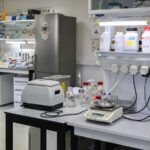Egg donation is a game of exceptional generosity, allowing women to assist others in creating families. It allows individuals or couples that have fertility problems to achieve their long-term dreams of becoming parents. Knowledge is key to making an informed, empowered decision for women considering egg donation. Here’s the egg donation process, step by step, so you can understand what that means and how women like those that take part in egg donation Utah become involved.

What is Egg Donation?
Egg donation is when a woman donates her eggs to another individual or couple so that they can conceive. The donor may be a woman whose own advanced age or medical conditions make producing viable eggs impossible. Egg donation is sometimes used by same-sex couples who want a child that has one partner’s sperm and an egg from a donor.
If you are thinking about egg donation Utah, then you should realize that the process is very well regulated and that there are plenty of special measures in place to ensure the safety of the donor and the recipient. Women who choose to be egg donors are usually compensated for their time and commitment, but many donors are motivated by the opportunity to help others achieve their dreams of parenthood.
Your Guide to the Egg Donation FAQs
If you’re thinking about egg donation, know the steps involved and can help you make an educated decision. The process usually goes through the following stages:
- Pre-Screening and Mensa Intake: The egg donor process begins with screening. Typically interested women will reach out to a fertility clinic or an egg donation Utah agency. At this stage, you will go through a series of medical and psychological assessments to confirm you are a good donor candidate.
- Routine Medical Screenings: These consist of bloodwork, genetic testing, and a physical examination to evaluate your well-being. In addition, psychological evaluations are conducted to confirm that you are mentally prepared to undergo egg donation and understand the responsibilities involved.
- Matching With Recipients: If you make it through the first-pass review, the next step is matching with a recipient. If you are going through an egg donation agency, the agency will match you with intended parents based on certain criteria, such as the way you look, your medical history, and your preferences. This matching process ensures that both the donor and recipient are ultimately on the same page in terms of expectations and goals.
- Women donate eggs anonymously or known donation — in which there is contact between the donor and recipient. It’s entirely at the behest of the donor and her preferences.
- Ovarian Stimulation and Monitoring: The next step after matching is ovarian stimulation. The donor is given hormones to induce her ovaries to produce multiple eggs — instead of the one egg that matures each month. The hormone injections start about 14 days before the egg retrieval procedure, supervised closely by fertility specialists.
- The donor will attend the clinic multiple times for ultrasounds and blood tests in order to check her response to the hormones during this period. These visits are needed to check that the ovaries are responding adequately and to monitor development of the eggs.
- Egg Retrieval: The last step in the egg donation process is the egg retrieval procedure, which is performed when the eggs have matured. This is performed with sedation and will take about 20-30 minutes. A fertility specialist extracts the eggs from the ovaries with an ultrasound-guided needle.
- Post Procedure: After the procedure, the donor may experience some discomfort or cramping, but this typically resolves in a few days. Following the retrieval, the donor can return to his or her normal activities, but bed rest is suggested for the first day or two.
- Post-Donation Follow-Up: After egg retrieval, the donor will be monitored for potential complications and will have hormone levels checked for a smooth recovery. Support with the emotional and physical aspects is provided, and potential donors can be counselled to process the emotions surrounding the donation.
- Fertilization: The eggs are then fertilized with sperm in the lab, and the embryos implanted into the recipient’s uterus. The results of the donation process can take weeks, as the recipient’s pregnancy must be confirmed.
Women Donating Their Eggs: Why Do They Do It?
Donating eggs is a deeply personal decision. Egg donation is a kindness to help a couple grow their family and become a parent. Not only that, but egg donation can also give you financial compensation along with emotional satisfaction in helping others. But for many donors, the chance to affect someone’s life is the motivating factor.

Conclusion
The decision to donate eggs is a profound and transformative one. Knowing about the process helps women considering egg donation in Utah do it right. The screening process also involves thorough assessments and tests, and once approved, the donor goes through a regimen of medications to stimulate the ovaries to produce multiple eggs, closely monitored at every step to ensure the safety and health of the donor by seasoned medical personnel and fertility experts. Whether driven by altruism or remuneration, an egg donor gives a unique and powerful gift that words can only convey in terms of its life-changing power.




Leave a Reply